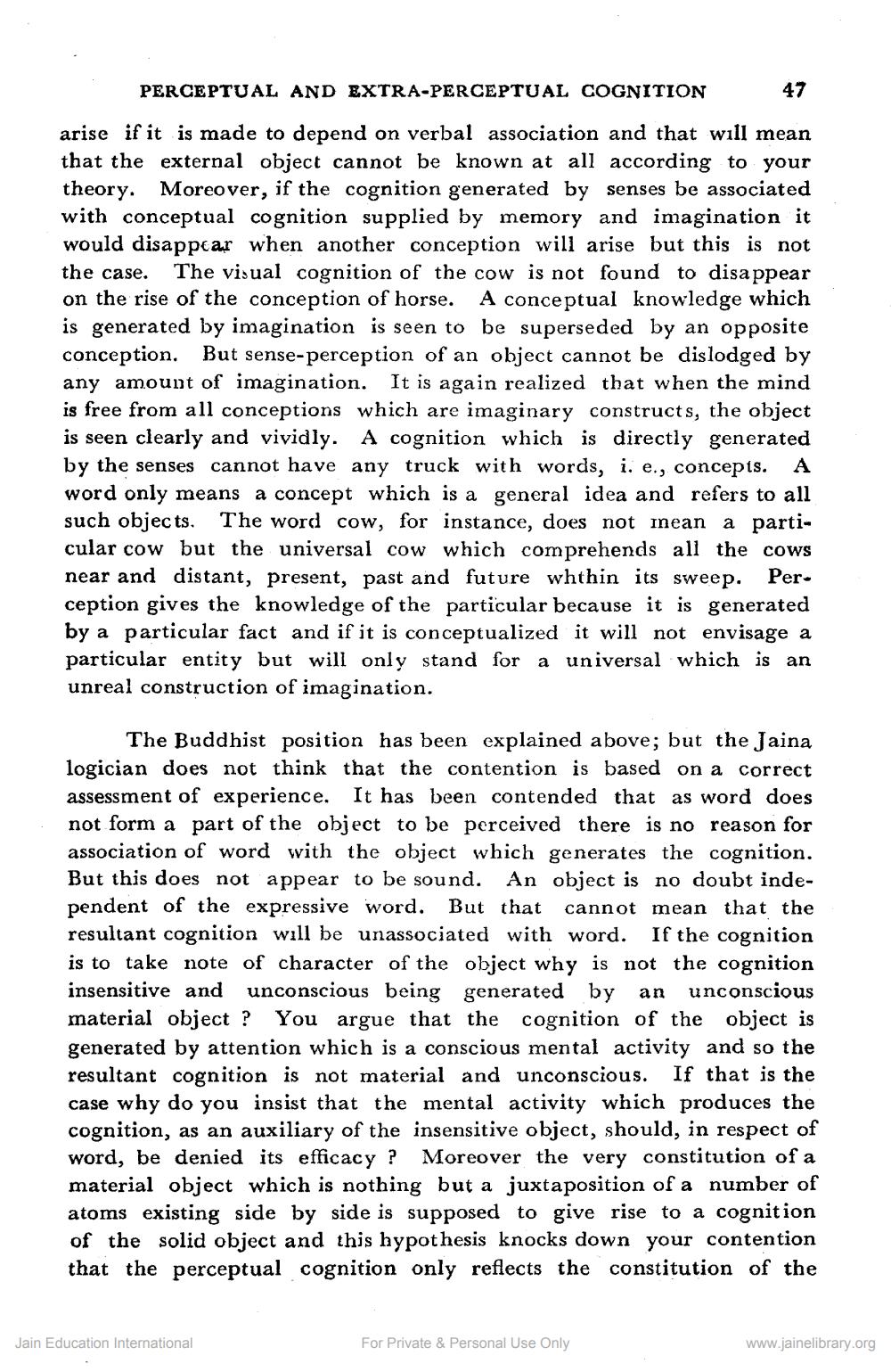________________
PERCEPTUAL AND EXTRA-PERCEPTUAL COGNITION
47
arise if it is made to depend on verbal association and that will mean that the external object cannot be known at all according to your theory. Moreover, if the cognition generated by senses be associated with conceptual cognition supplied by memory and imagination it would disappear when another conception will arise but this is not the case. The visual cognition of the cow is not found to disappear on the rise of the conception of horse. A conceptual knowledge which is generated by imagination is seen to be superseded by an opposite conception. But sense-perception of an object cannot be dislodged by any amount of imagination. It is again realized that when the mind is free from all conceptions which are imaginary constructs, the object is seen clearly and vividly. A cognition which is directly generated by the senses cannot have any truck with words, i. e., concepts. A word only means a concept which is a general idea and refers to all such objects. The word cow, for instance, does not inean a particular cow but the universal cow which comprehends all the cows near and distant, present, past and future whthin its sweep. Perception gives the knowledge of the particular because it is generated by a particular fact and if it is conceptualized it will not envisage a particular entity but will only stand for a universal which is an unreal construction of imagination.
The Buddhist position has been explained above; but the Jaina logician does not think that the contention is based on a correct assessment of experience. It has been contended that as word does not form a part of the object to be perceived there is no reason for association of word with the object which generates the cognition. But this does not appear to be sound. An object is no doubt independent of the expressive word. But that cannot mean that the resultant cognition will be unassociated with word. If the cognition is to take note of character of the object why is not the cognition insensitive and unconscious being generated by an unconscious material object? You argue that the cognition of the object is generated by attention which is a conscious mental activity and so the resultant cognition is not material and unconscious. If that is the case why do you insist that the mental activity which produces the cognition, as an auxiliary of the insensitive object, should, in respect of word, be denied its efficacy ? Moreover the very constitution of a material object which is nothing but a juxtaposition of a number of atoms existing side by side is supposed to give rise to a cognition of the solid object and this hypothesis knocks down your contention that the perceptual cognition only reflects the constitution of the
Jain Education International
For Private & Personal Use Only
www.jainelibrary.org




